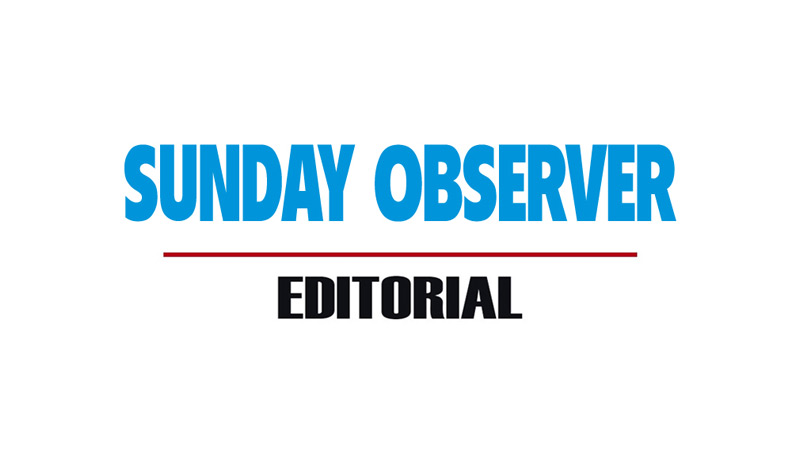President Anura Kumara Dissanayake’s official visit to Germany, the first to Europe since assuming office marks a turning point in Sri Lanka’s foreign policy narrative. This visit carries weighty political symbolism and tangible potential for economic, technological, and strategic transformation. It signals not just a deepening of Sri Lanka-Germany ties, but also a recalibration of how the country engages with Western powers under a Left-leaning administration.
Critically, the visit to Germany, Europe’s largest economy and a central player in European Union (EU) politics dismantles a myth propagated by the Opposition: that only former President Ranil Wickremesinghe, with his pro-Western outlook, could engage credibly with the West. President Dissanayake’s warm reception in Berlin, constructive discussions with German leaders, and agreements on economic cooperation prove otherwise. The West, it seems, is more interested in substance, stability, and integrity than ideology.
Some observers questioned whether Sri Lanka under its new leadership was pivoting too heavily towards Asia, given President Dissanayake’s early visits to India, China and Vietnam. There were murmurs that the Government’s Leftist orientation might signal a retreat from engagement with the West. This visit has dispelled such assumptions.
It affirms that the administration is committed to a balanced, non-aligned foreign policy that prioritises national interest above ideological divides.
At the core of the President’s visit was the goal of securing economic recovery and long term prosperity for Sri Lanka. Germany, as a global manufacturing and export powerhouse, is an ideal partner. Bilateral trade already exceeds Euro 900 million annually, but the true trade potential is yet to be realised. Sri Lanka’s exports to Germany, mainly apparel, tea, spices, and rubber goods can be diversified and scaled up with the right partnerships.
President Dissanayake’s engagement with German trade bodies and business leaders placed strong emphasis on encouraging investment in sustainable industries, ethical supply chains, and technology sectors. Germany’s own push for secure, diversified supply routes in the wake of global disruptions positions Sri Lanka as a natural partner in Asia.
Germany’s stringent labour and environmental standards also align with the President’s domestic agenda of building an equitable, clean, and fair economy. This alignment creates new possibilities for GSP+ retention and broader EU market access, which is critical for Sri Lanka’s export industries.
Germany is a hub of innovation, engineering, and vocational excellence. Sri Lanka’s industrial and educational systems can gain tremendously from German collaboration, especially in renewable energy, industrial machinery, waste management, and technical education.
With Germany’s emphasis on socially responsible investment, especially through its Mittelstand (SMEs) Sri Lanka can attract stable investors who bring both capital and capacity-building. This is not just a matter of short-term economic gain, but a long-term development partnership grounded in mutual interest and shared values.
Tourism too featured prominently in the bilateral talks. German tourists represent one of the highest-spending, longest-staying segments of Sri Lanka’s visitor population. They seek meaningful experiences, eco-tourism, cultural heritage, wellness, and sustainability, which Sri Lanka is uniquely poised to deliver. With the right promotion and policy support, the German market can play a key role in reviving Sri Lanka’s tourism sector.
Germany’s importance to Sri Lanka is not only economic. Politically, Germany is a valuable partner because of what it does not bring – military ambitions or hegemonic designs in the Indian Ocean Region (IOR). Germany’s foreign policy is based on diplomacy, trade, and values. This makes it a trustworthy, long term partner for Sri Lanka, which must carefully balance regional sensitivities.
The symbolic importance of Germany as the President’s first European destination cannot be overstated. It sends a strong message that Sri Lanka under President Dissanayake is not retreating into ideological comfort zones, but engaging the world pragmatically and on equal terms.
Moreover, Germany’s influence within the EU, and its history of supporting Sri Lanka in development cooperation, makes it an essential ally as Sri Lanka seeks continued international support for debt restructuring, Climate Finance, and trade.
Germany and Sri Lanka established diplomatic relations in 1953, and since then, Germany has extended substantial development aid, educational exchanges, and humanitarian assistance. But this long standing relationship lacked strategic depth in recent years.
President Dissanayake’s visit is a timely effort to revive and reshape that relationship, anchored not only in history, but also in future potential. It reflects a departure from transactional diplomacy towards a value-driven, strategic partnership.
President Dissanayake’s visit to Germany is more than a diplomatic milestone, it is a strategic statement. It affirms Sri Lanka’s place on the world stage as a pragmatic and forward-looking nation. It disproves the notion that Leftist leaderships cannot work with the West, and shows that engagement is shaped by credibility and commitment, not ideological labels.
This visit lays the groundwork for a new chapter in Sri Lanka’s international relations, one that embraces cooperation, sustainability, and mutual respect on the world stage.







